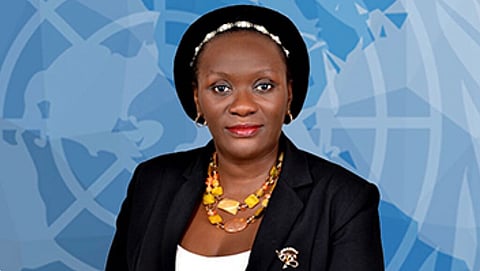

A senior Ugandan judge who also served with the United Nations has been sentenced to six years and four months in prison for enslaving a young woman as an unpaid domestic worker in the United Kingdom.
Lydia Mugambe, 50, a High Court judge in Uganda and former UN judicial appointee, was convicted in March on four charges, including forced labor, immigration fraud, and witness intimidation under Britain’s Modern Slavery Act. The Oxford Crown Court found she exploited her position of power over the victim in what the presiding judge called a "very sad case" of abuse.
Prosecutors said Mugambe lured the young Ugandan woman to the UK in 2022 under false pretenses, forcing her to work as a maid and nanny without pay while Mugambe pursued a PhD at the University of Oxford. The victim’s visa application was allegedly falsified with the help of John Leonard Mugerwa, then Uganda’s deputy high commissioner in London.
In a written statement read in court, the victim described living in "almost constant fear" and said she could not return to Uganda due to Mugambe’s influence, fearing she might never see her family again.
Sentencing Mugambe on Friday, Judge David Foxton noted her distinguished legal career, including work in human rights, but condemned her lack of remorse. "You have shown absolutely no regret for your conduct," he said. "Instead, you continue, wholly unjustifiably, to depict yourself as the victim."
Prosecutor Caroline Haughey KC highlighted the "clear and significant imbalance of power" in the case, stating the victim had been granted UK asylum over fears of persecution in Uganda. Mugambe’s defense counsel, Paul Raudnitz KC, cited her "glittering legal career" and support from backers, some of whom protested outside the court.
Mugambe, who has resigned from the UN, was also issued a restraining order barring contact with the victim. The case has drawn scrutiny to abuses enabled by diplomatic and professional privilege.